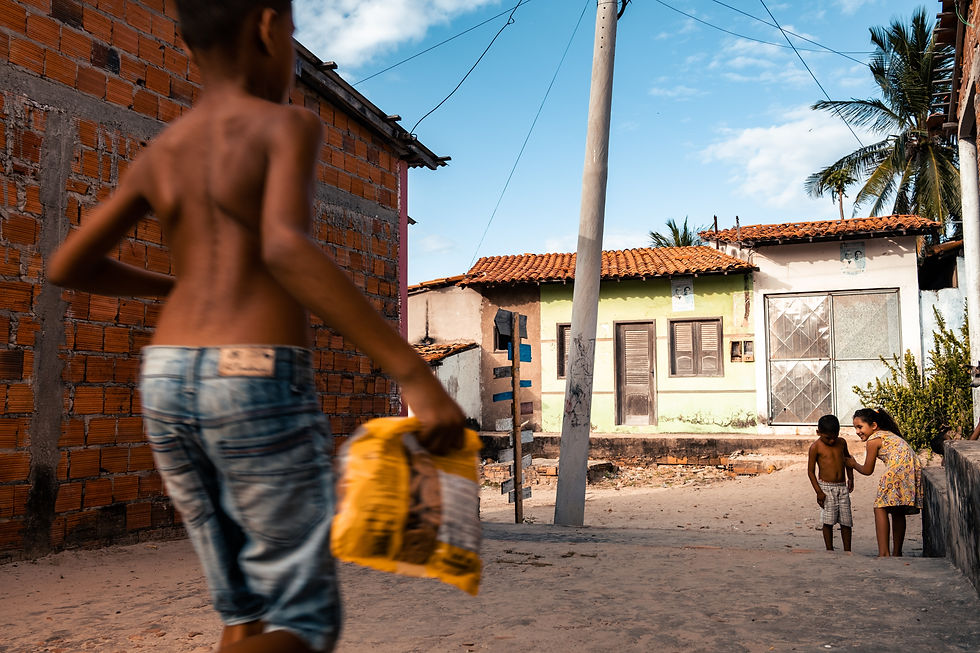Children at the heart of cities shaping urban futures that work for all
- Editorial Team SDG11

- Nov 21, 2025
- 3 min read

Urbanisation, while often synonymous with opportunity and innovation, can also magnify inequality. As cities expand, millions of children grow up in environments shaped by inadequate housing, unsafe public spaces, poor air quality, and limited access to essential services. The Cities4Children alliance, led by Save the Children and uniting over 25 organisations worldwide, seeks to transform this reality by ensuring that cities are planned and governed with the youngest citizens in mind.
The initiative is rooted in a simple yet profound belief: cities designed for children become better cities for everyone. By embedding children’s rights into urban policy, Cities4Children addresses issues such as urban poverty, health inequities, climate resilience, and participatory governance. It operates as both a knowledge hub and a platform for coordinated action, fostering collaboration across sectors and disciplines.
Integrating children’s rights into urban planning
According to UNICEF and World Bank data, over one billion children now live in urban areas, a number expected to double by 2050. Many of these young residents inhabit informal settlements where access to clean water, healthcare, and safe play spaces is scarce. Cities4Children responds to this challenge by promoting practical frameworks for inclusive design, urban safety, and equitable service delivery.
The alliance also conducts research series and policy briefs, offering evidence-based recommendations to local governments and planners. These resources highlight the long-term benefits of child-friendly policies, such as improved public health outcomes, reduced exposure to environmental hazards, and enhanced social cohesion.
Empowering young voices in city governance
A distinctive feature of Cities4Children is its commitment to amplifying children’s and youth’s voices in decision-making. Through participatory mapping, youth forums, and urban labs, the initiative ensures that young people are not passive recipients of policy but active contributors to shaping it. Such engagement strengthens civic trust and accountability, aligning closely with the Sustainable Development Goal 11 on sustainable cities and communities.
One emerging opportunity to deepen this collaboration is through the Youth Climate Action Fund, which is now inviting city leaders to support youth-led climate initiatives. The fund offers $50,000 in grants plus expert support to help cities launch innovative, youth-driven climate projects. Municipal leaders can register their interest by 30 November and submit an Expression of Interest via the official form.
City halls can now sign up to be among the first to receive information on how to apply for the next phase of the Youth Climate Action Fund. Any city representative may submit an Expression of Interest on behalf of the municipality, and the contact person can be updated at any time by emailing info@youthclimateactionfund.org
This initiative underscores the vital role of young people in advancing practical climate solutions. Cities that engage youth in environmental leadership not only nurture local innovation but also build more resilient, greener, and fairer communities.
Building resilient, fair, and inclusive cities
As climate risks intensify and inequalities widen, integrating children’s perspectives into urban resilience strategies becomes increasingly urgent. When city plans prioritise clean air, safe mobility, and accessible green spaces, they contribute not only to children’s wellbeing but to environmental and social sustainability as a whole.
By championing the rights and needs of children, Cities4Children exemplifies how collective action can create urban systems that nurture rather than neglect. Its vision, a world where every child can grow up healthy, safe, and happy, offers a model for the cities of tomorrow.
For more insights on their initiatives and research, visit Cities4Children.



